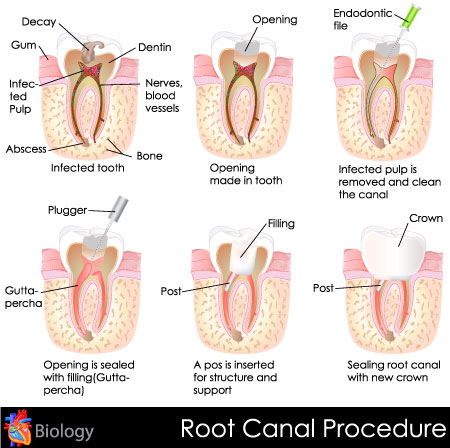When teeth haven’t been looked after properly and there is extensive decay into the tooth, there may be pain related to inflammation of the nerve inside the tooth. Bacteria from the oral cavity causes irritation of the exposed nerve and if left untreated can lead to nerve damage and eventually necrosis. The bacteria are then able to enter the intricate root canal system of the tooth, making its way eventually to the bone, ligament and parts of the body surrounding the tooth. This may result in aggravating pain, heightened and prolonged sensitivity, facial swelling and possibly even septicaemia.
In root canal treatment, the aim is to remove and reduce the number of bacteria in the root canals to a level where the body no longer poses a threat to the body and the inflammation heals up. This allows the tooth to be kept in the mouth for chewing and function.
In very difficult and complex cases, further referral to a specialist in endodontics may be required. A specialist endodontist has specialised equipment and materials that may make treatment of the root canals easier.
After the root canal treatment is completed, the tooth maybe more susceptible to fractures if there was a significant loss of tooth structure prior to root canal treatment. A dental crown may be recommended in these cases to help preserve and protect the remaining tooth structure and ensure a good long-term outcome.


